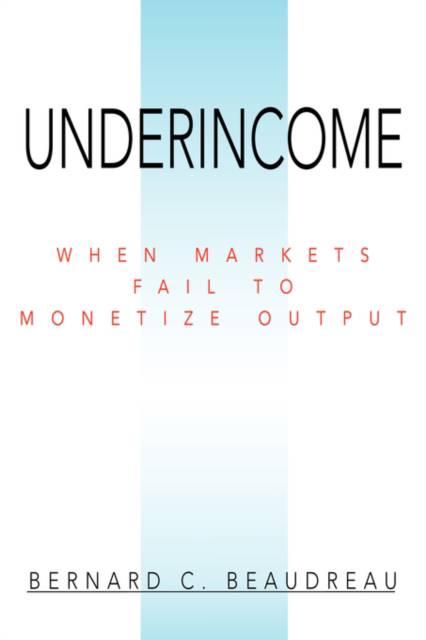
- Retrait gratuit dans votre magasin Club
- 7.000.000 titres dans notre catalogue
- Payer en toute sécurité
- Toujours un magasin près de chez vous
- Retrait gratuit dans votre magasin Club
- 7.000.0000 titres dans notre catalogue
- Payer en toute sécurité
- Toujours un magasin près de chez vous
Description
Monetarists, notably Milton Friedman and Anna J. Schwartz, have chronicled the history of money in the United States, establishing a direct link between the ability to monetize output as defined by the fractional reserve system in the United States, and the ability to create wealth. Recessions are linked to the failure of the Federal Reserve Board in the United States to provide the necessary liquidity, and vice versa. In short, the business cycle is essentially a money-supply driven phenomenon.
This book examines another type of monetary failure, namely the failure on the part of advanced industrial economies to monetize output, a failure rooted in the very nature of the transaction technology (producers and merchants) as opposed to being "supply related" (e.g. central banks, supply of specie). Specifically, in periods of paradigm technological change, money income fails to increase commensurately with society's ability to create wealth, resulting in underincome. As there are no private incentives to increase wage income (real or nominal) in response to greater productivity and profits are a residual income form, overall income fails to increase with productive capacity.
Spécifications
Parties prenantes
- Auteur(s) :
- Editeur:
Contenu
- Nombre de pages :
- 232
- Langue:
- Anglais
Caractéristiques
- EAN:
- 9780595477401
- Date de parution :
- 19-12-07
- Format:
- Livre broché
- Format numérique:
- Trade paperback (VS)
- Dimensions :
- 152 mm x 229 mm
- Poids :
- 344 g

Les avis
Nous publions uniquement les avis qui respectent les conditions requises. Consultez nos conditions pour les avis.






